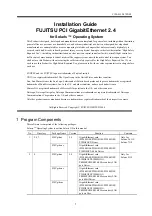
aponorm
®
by
16
5. Always ensure that the correct cuff size is used (marking on
the cuff).
• Fit the cuff closely, but not too tight.
• Make sure that the cuff is positioned 2 cm above the
elbow.
• The
artery mark
located on the cuff (ca. 3 cm long bar)
must lie over the artery which runs down the inner side of
the
arm.
• Support your arm so it is relaxed.
• Ensure that the cuff is at the same height as your heart.
6. Slide the lock switch
12
down to the «unlock» position.
Press the START/STOP button
1
to start measuring.
7. The cuff will now pump up automatically. Relax, do not move
and do not tense your arm muscles until the measurement
result is displayed. Breathe normally and do not talk.
8. When the correct pressure is reached, the pumping stops
and the pressure falls gradually. If the required pressure was
not reached, the device will automatically pump some more
air into the cuff.
9. During the measurement, the pulse indicator
20
flashes in
the
display.
10. The result, comprising the systolic
14
and the diastolic
15
blood pressure and the pulse rate
16
is displayed. Note also
the explanations on further display symbols in this booklet.
11. When the device has finished measuring, remove the cuff.
12. Switch off the device. (The monitor does switch off
automatically after approx. 1 min.).
How not to store a reading
Press the START/STOP button
1
while the reading is being
displayed. Keep the button pressed until «
M
»
19
is flashing and
then release it. Confirm by pressing the M-button
9
again.
)
You can stop the measurement at any time by pressing the
START/STOP button (e.g. if you feel uneasy or an
unpleasant pressure sensation).
4. Appearance of the Pulse Arrhythmia Indicator
for early Detection
This symbol
22
indicates that certain pulse irregularities were
detected during the measurement. In this case, the result may
deviate from your normal blood pressure – repeat the measu-
rement.
In most cases, this is no cause for concern. However, if the
symbol appears on a regular basis (e.g. several times a week
with measurements taken daily) we advise you to tell your
doctor.
Please show your doctor the following explanation:
Information for the doctor on frequent appearance of the
Arrhythmia indicator
This device is an oscillometric blood pressure monitor that also
analyses pulse irregularity during measurement. The device is
clinically tested.
The arrhythmia symbol is displayed after the measurement, if
pulse irregularities occur during measurement. If the symbol
appears more frequently (e.g. several times per week on
measurements performed daily) we recommend the patient to
seek medical advice.
This device does not replace a cardiac examination, but serves
to detect pulse irregularities at an early stage.
5. Traffic Light Indicator in the Display
The bars on the left-hand edge of the traffic light display
18
show you the range within which the indicated blood pressure
value lies. Depending on the height of the bar, the readout value
is either within the optimum (green), elevated (yellow), too
high (orange) or dangerously high (red) range. The classifica-
tion corresponds to the 4 ranges in the table as defined by
the international guidelines (ESH, AHA, JSH), as described in
«Section 1.».
Summary of Contents for 046932
Page 1: ...Gebrauchsanweisung Oberarm DE 2 RU 32 EN 12 TR 22 B a s i s P L U s ...
Page 3: ...aponorm by 1 1 2 3 4 5 6 7 8 9 10 11 12 13 14 15 16 17 24 18 19 20 22 21 23 ...
Page 23: ...aponorm Basis Plus 21 EN ...
Page 33: ...aponorm Basis Plus 31 TR ...
Page 44: ...aponorm by 42 ...
Page 45: ...aponorm Basis Plus 43 ...
















































